Space was once the exclusive domain of superpower
space agencies, but now entrepreneurs and tech-savvy
start-ups are pushing the extraterrestrial boundaries.
The space industry is opening up new frontiers
in Southeast Asia, with Singapore fast emerging
as a regional hub for a growing tribe of scientists,
inventors, designers and so-called astropreneurs
with their sights set firmly on the stars.
From Thailand to Australia, from Laos to India and from the Philippines to Japan, my friend — and the former Managing Editor of Singapore Airlines’ SilverKris inflight magazine — Nick Measures and I have been collaborating on travel stories for a number of years. Since we’ve both been grounded in Singapore since March, however, our ability to partner on international features has become impossible. So Nick and I started looking more closely around our own backyard for inspiration: colourful locales, engaging characters and intriguing stories right here in Singapore. We’ve found quite a few ideas, and this one — about Singapore’s emergence as the space technology hub of Southeast Asia — was commissioned by the South China Morning Post.
With Elon Musk’s SpaceX shuttling Nasa astronauts to the International Space Station and Virgin Galactic planning to begin commercial flights next year, space has never been more accessible.
For the business-minded, it’s never had more commercial potential. Around US$3.25 billion was invested in space start-ups in 2018, while a 2020 report by Morgan Stanley predicted the space economy could be worth up to US$1.1 trillion by the 2040s.
Space was once the exclusive domain of superpower space agencies, but now entrepreneurs and tech-savvy start-ups are pushing the extraterrestrial boundaries.
The space industry is opening up new frontiers in Southeast Asia, with Singapore fast emerging as a regional hub for a growing tribe of scientists, inventors, designers and so-called astropreneurs with their sights set firmly on the stars.
A recent arrival is Zero-Error Systems (ZES), which in October was funded to the tune of US$1.85 million by a group of investors that includes Airbus Ventures, the venture capital arm of European aeroplane manufacturing consortium Airbus.
Founded in 2019, ZES is the commercial evolution of a six-year research project at Singapore’s Nanyang Technological University. It has developed a microchip that reduces the cost and improves the reliability and capability of electronics used in satellites — an appealing option in an electronics-heavy industry that is worth about US$424 billion a year globally.
“Our vision is to be in every satellite and every autonomous vehicle,” says Shu Wei, ZES co-founder and chief technology officer.
Funds are pouring into such Singapore-based space start-ups. Aliena, which develops electric propulsion solutions for nano-satellites, raised US$1.1 million last year, while in July Transcelestial raised an impressive US$9.6 million to develop technology using lasers and satellites to create a superfast internet.
“Singapore has a good ecosystem for entrepreneurship and it’s in a unique position to approach both Western and Eastern markets,” says Wei. “We’re pleased to see the space industry booming; it gives us an opportunity to hop onto this trend.”
Equally enthusiastic is entrepreneur Lynette Tan, who co-founded Singapore Space and Technology (SSTL) in 2007 to shine a light on the commercial potential of space.
“Singapore is now home to the highest number of space-related organisations in Southeast Asia,” she says. “We’re here to broker conversations between experts and those looking to move into the industry.”
One of SSTL’s first steps was to organise the Global Space and Technology Convention to kick-start industry interaction. Launched in 2008 with just 80 delegates, it is now arguably Asia’s leading space tech conference. The latest event, held in February, hosted more than 800 delegates from over 300 companies and leading space agencies.
Earlier this year, SSTL launched a space-based accelerator programme that supports 23 global start-ups, including ZES and Aliena, and helps them find seasoned mentors, users and investors.
“People need to be astute and realise the seriousness of the industry,” says Tan, who left the pharmaceutical industry to work full time with SSTL. “It’s not a magic show; it’s a business.”
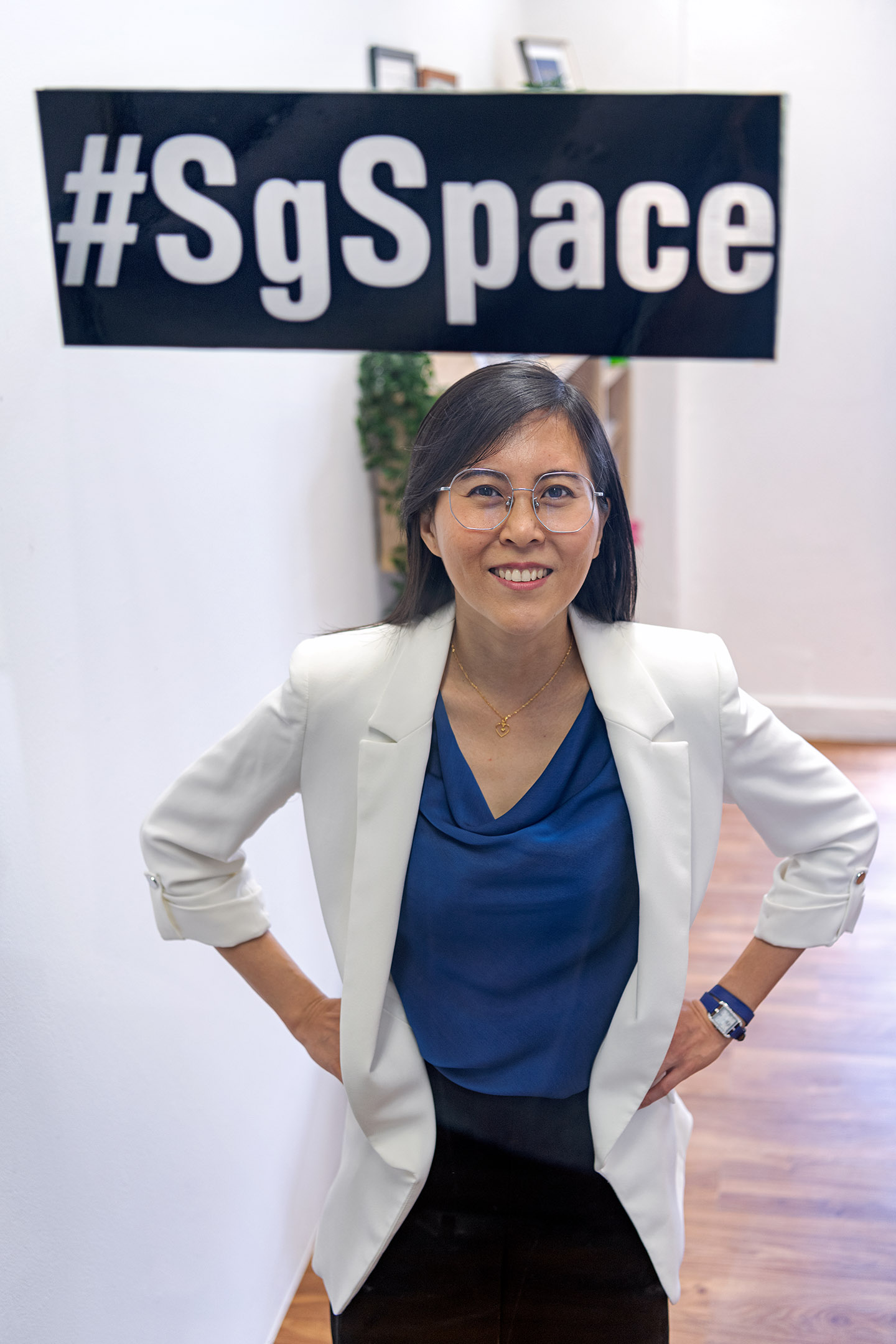
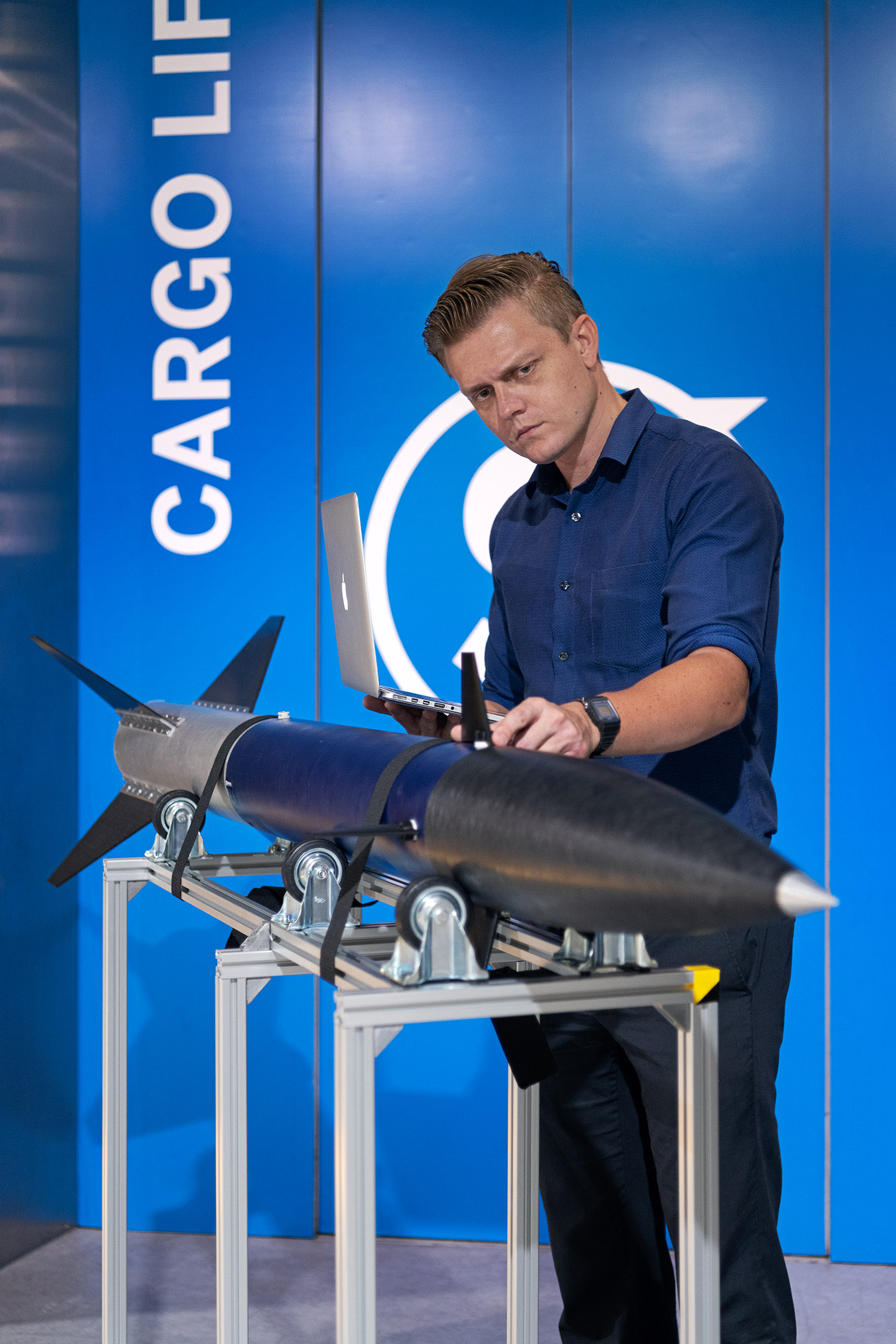
Despite the large sums of money flowing into space technology, it has taken years for even the biggest players, such as SpaceX and Virgin Galactic, to turn a profit. “People do get easily excited with space, but the financial aspect is harder to get right than the rocket technology,” Tan says.
Simon Gwozdz is co-founder of Equatorial Space Systems, a member of the space accelerator programme. “At our heart we are a transport company,” says Gwozdz, who was born in Poland. “It just happens we will be transporting satellites into space.”
Equatorial Space Systems began as Gwozdz’s hobby when he was studying at the National University of Singapore. Its aim is to design rockets that use a hybrid propulsion system to provide a safer, more reliable and cost-effective way to get small satellites into space.
After successful ground tests, the next step was to attract funding by capitalising on a low-altitude demonstration rocket flight in Malaysia in May. The Covid-19 pandemic derailed the company’s plans for the flight, however, as well as briefly sidelining Gwozdz with the virus.
The team is now back on track and confident the prototype rocket demonstration will be completed before the end of the year, but it’s clear getting the technology to work is not the biggest concern.
“We need this launch to attract prospective investors and launch clients, by showing our system’s functionality in flight,” explains Gwozdz, who says staying solvent, especially this year, has been a challenge.
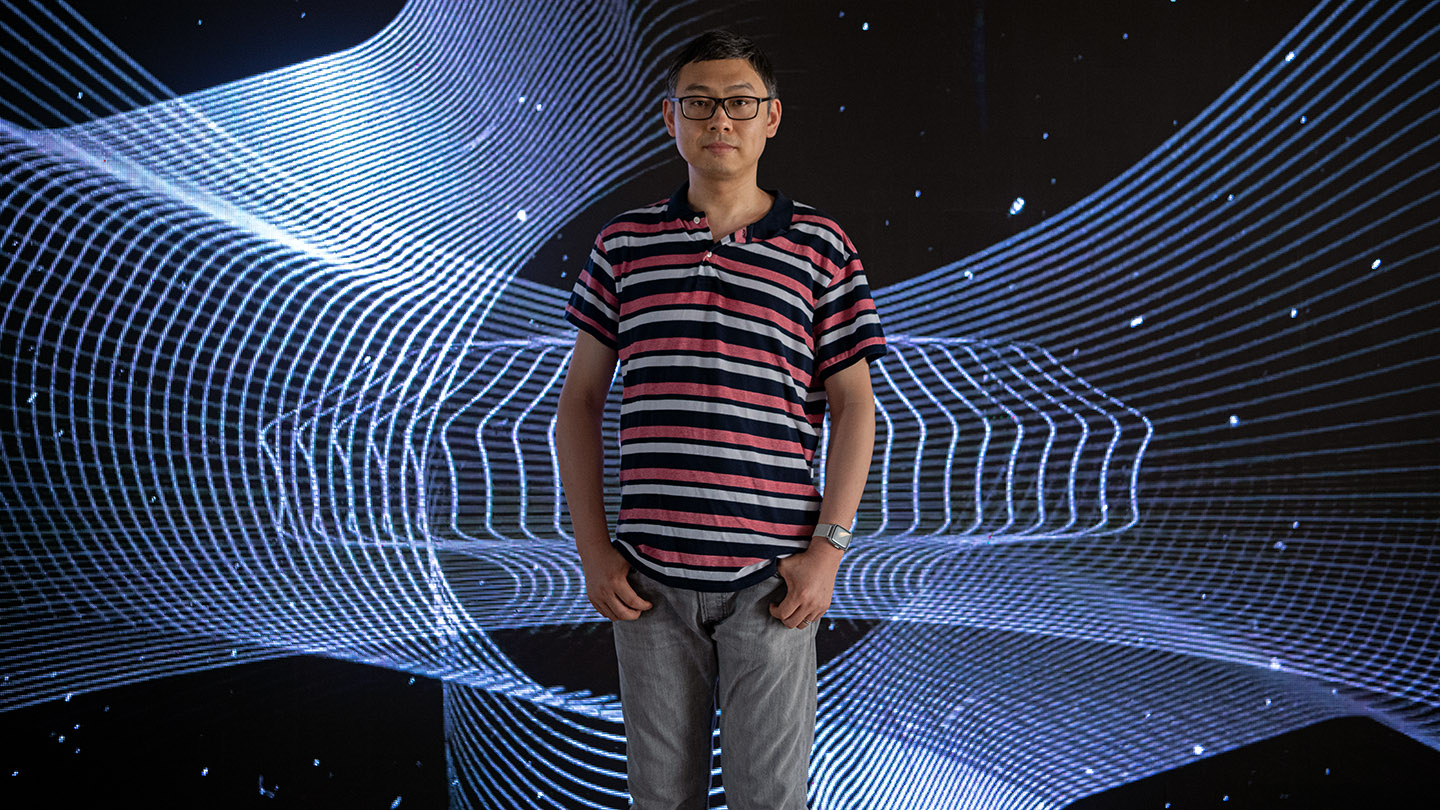
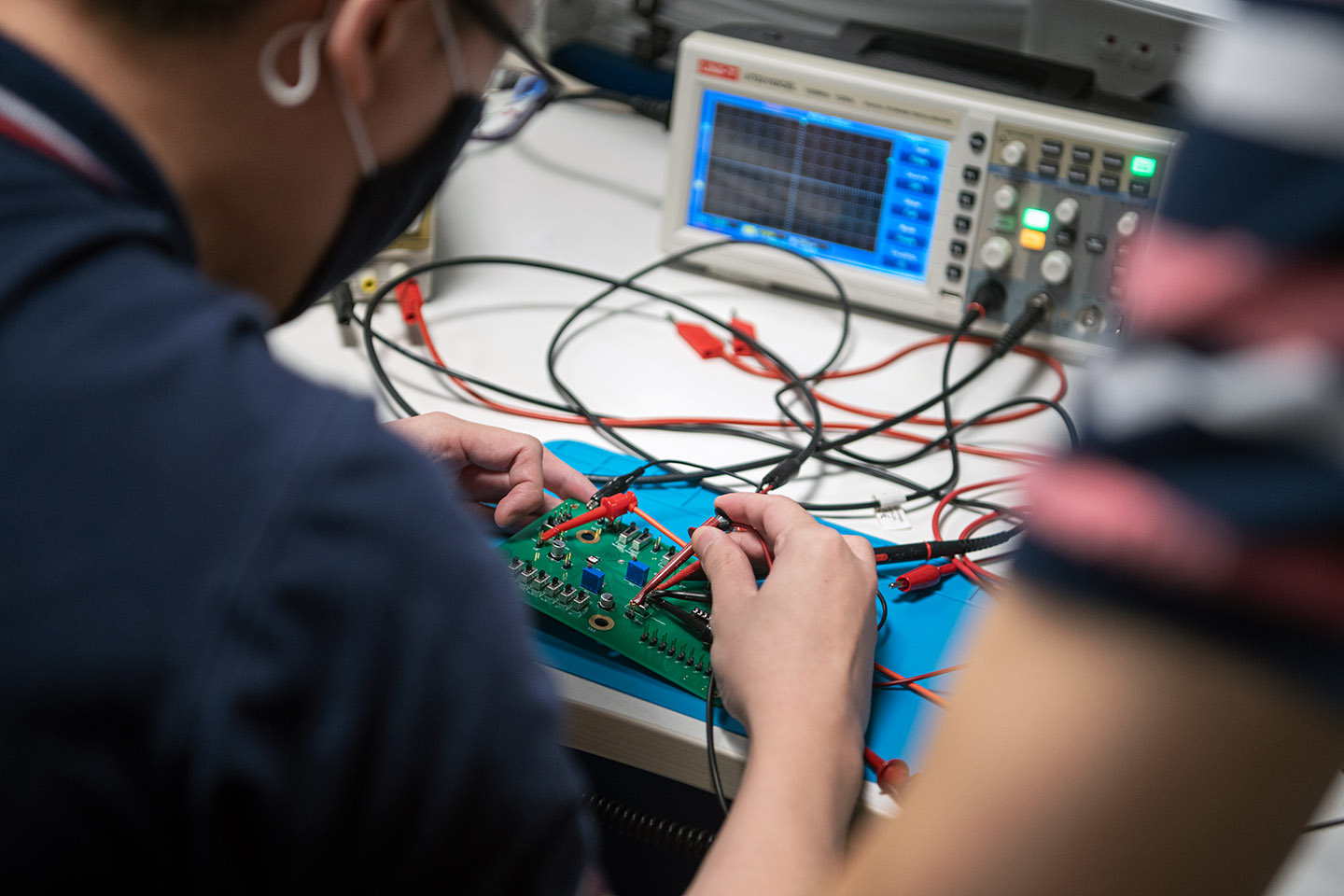
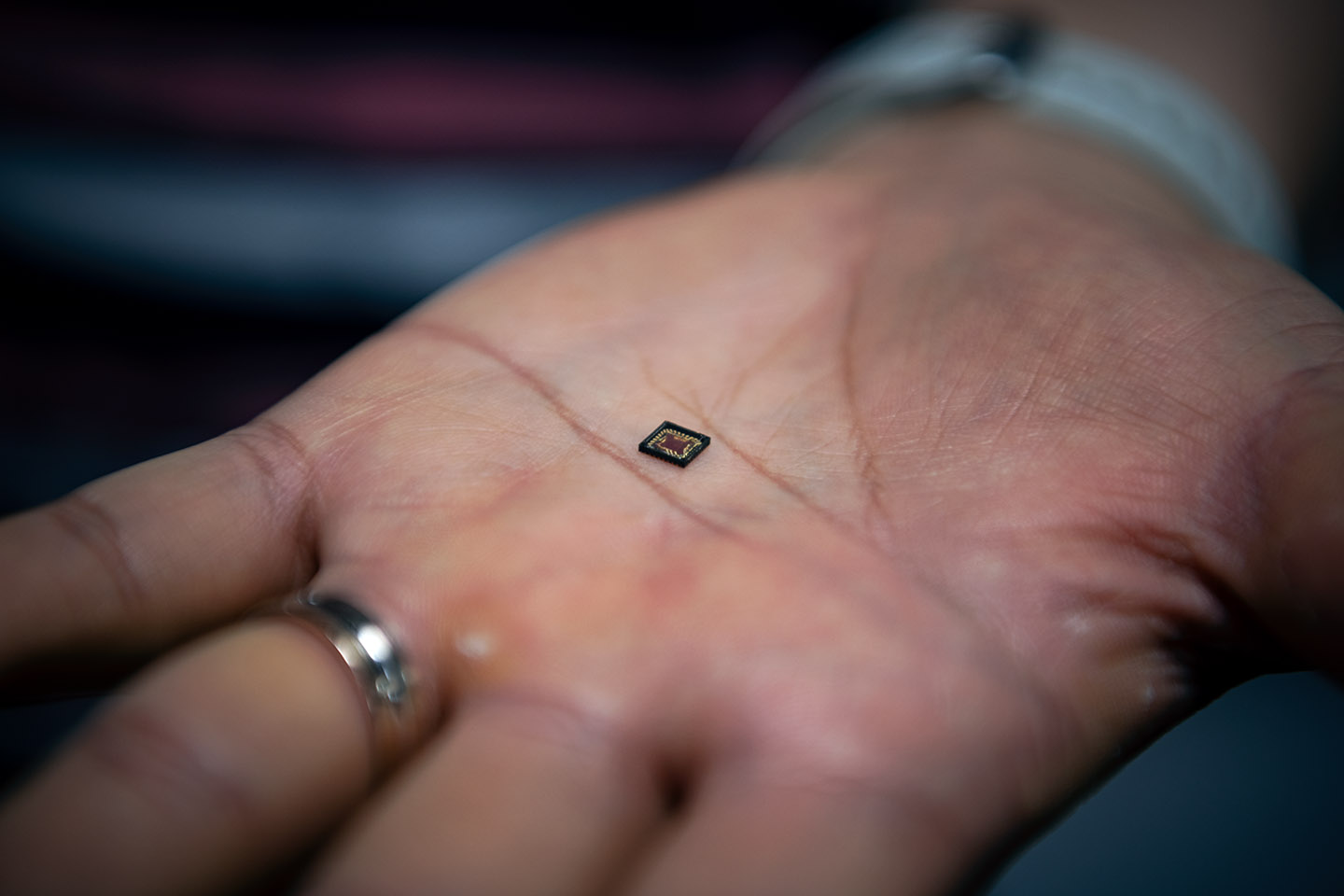
The rocket’s potential could be huge. A Euroconsult 2019 report predicts that nearly 8,600 small satellites will be launched between 2019 and 2028. The Equatorial Space team estimates US$30 million is needed to develop the orbital launcher and vie for a slice of this booming market. That might sound like a lot of money, but according to Gwozdz, it’s a quarter of the budget of similar companies such as Rocket Lab in the United States.
The Equatorial rocket, dubbed Volans after a star constellation in the southern skies, will be 18 metres long and weigh about 20 tonnes. Capable of putting a 180kg payload in orbit, the rocket will be able to carry the new microsatellites. Its relatively small size should provide an opportunity for land-poor countries such as Singapore.
“Our ultimate aim is to be able to establish sea launch operations in the region,” says the relentlessly optimistic Gwozdz. “Bringing a sovereign launch capability to our host country will be a really big deal.”
Entrepreneur Marvyn Lim Seng has already had some experience in the field of space. In 2019, in Alice Springs, Australia, his home-made space capsule, suspended from a stratospheric balloon, reached an altitude of 8km before a pressure leak aborted the mission.
It was his team’s third attempt to put the first Singaporean above the Armstrong Line, an invisible marker 20km above the Earth, seen by many as the edge of space.
Lim is preparing for another attempt next year if he and his team can raise about S$1.5 million (US$1.1 million); small change in the realm of space travel.
To make the investment even more appealing, the team will design a two-man capsule this time, offering the opportunity for a wealthy benefactor to hitch a ride.
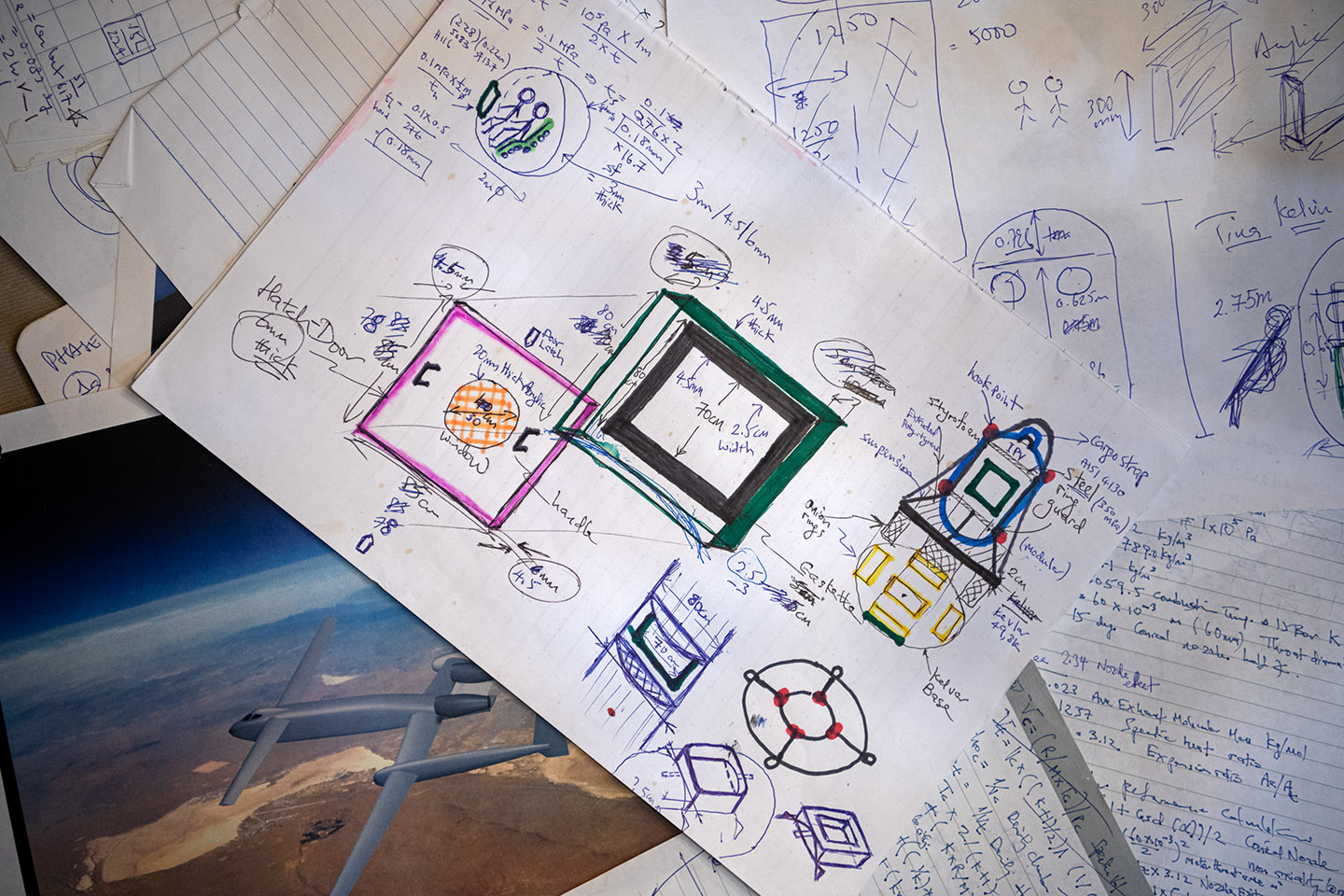
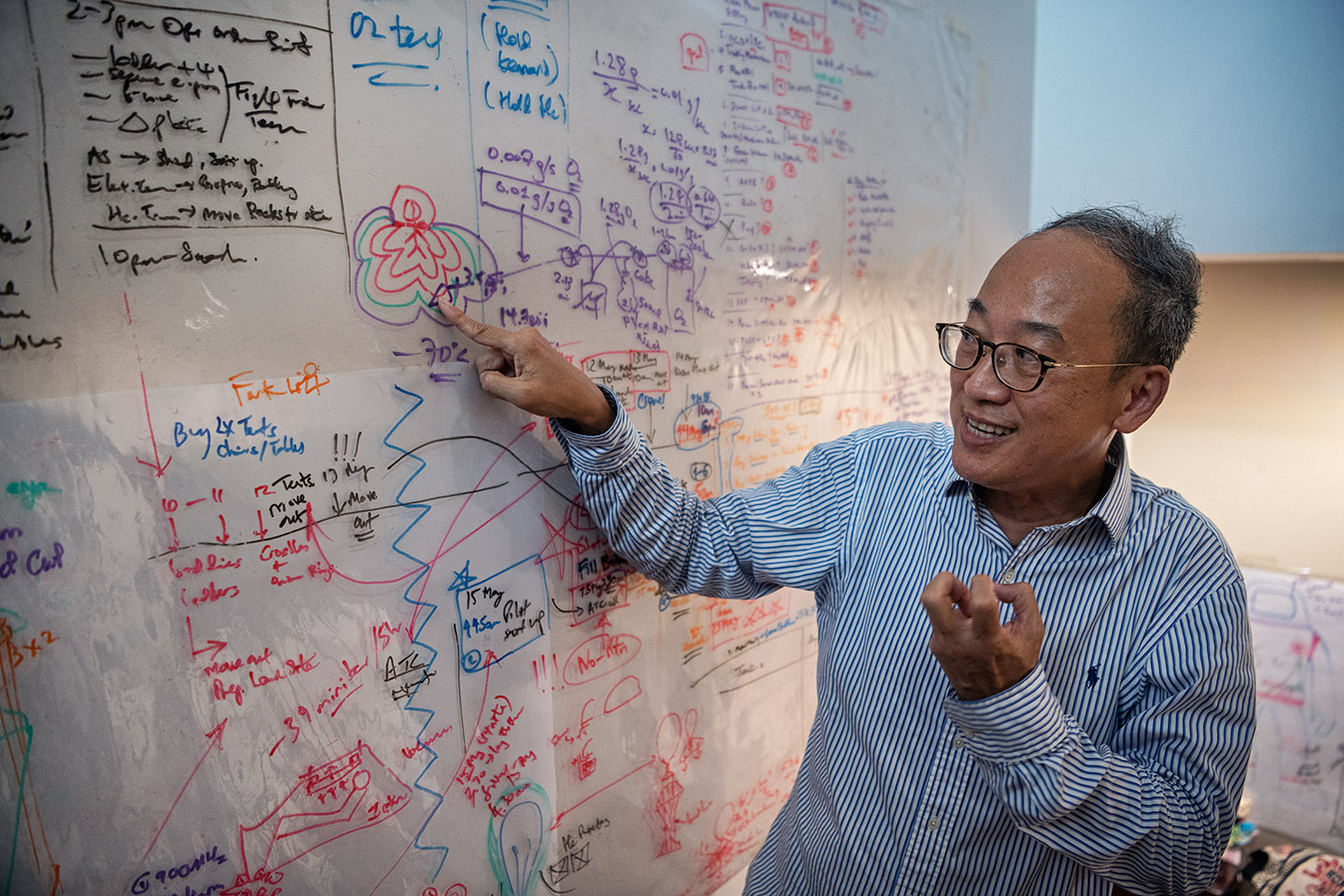
“I’ve done my part,” says Lim, who funded previous attempts. “It’s time for someone else to step forward, someone who wants to make history and leave a legacy for themselves and for Singapore.”
The scientist says he is trying to lead by example. “I have this knowledge and I want to use it to give something back,” he says. “I also want to prove a point to myself and to Singapore. I want to show we might be small, but we can think big.”
Lim’s knowledge came from his work on drone technology for Singapore’s Ministry of Defence and helping Airbus build hypersonic planes. He says the contacts he made during his career, especially with scientists in India and Australia, helped him get this far.
Pioneers need a can-do attitude, he adds, something he feels “risk averse” Singapore is not so good at. “No one dares do anything; you can work out all the rocket equations you like, but at some stage you have to try,” he says.
Some young scientists are willing to try. Surya Shanmugam, 22, and Jacob Tang, 20, also known as Starfleet Command, won SSTL’s annual Singapore Space Challenge this year. The pair’s design for a method to deal with space junk won the S$10,000 (US$7,400) first prize, ahead of 74 competitors from institutes around the world.
Tang currently works as a logistics analyst for the oil and gas industry, and Shanmugam is about to start a mechanical engineering degree. Both are focused on a career in space in Singapore.
Tang believes Singapore has the potential to become the biggest space industry hub in the region, and says he and Shanmugam hope to eventually work on a start-up in the space industry.
“Winning the competition gives us the confidence that it’s a viable career,” says Shanmugam. “I feel like this is the start of a booming industry and it’s good to be here at the start.”
See more of our work for the South China Morning Post, including our feature about Singapore’s Sungei Buloh Wetland Reserve, an unlikely wild corner of modern-day Singapore, here.
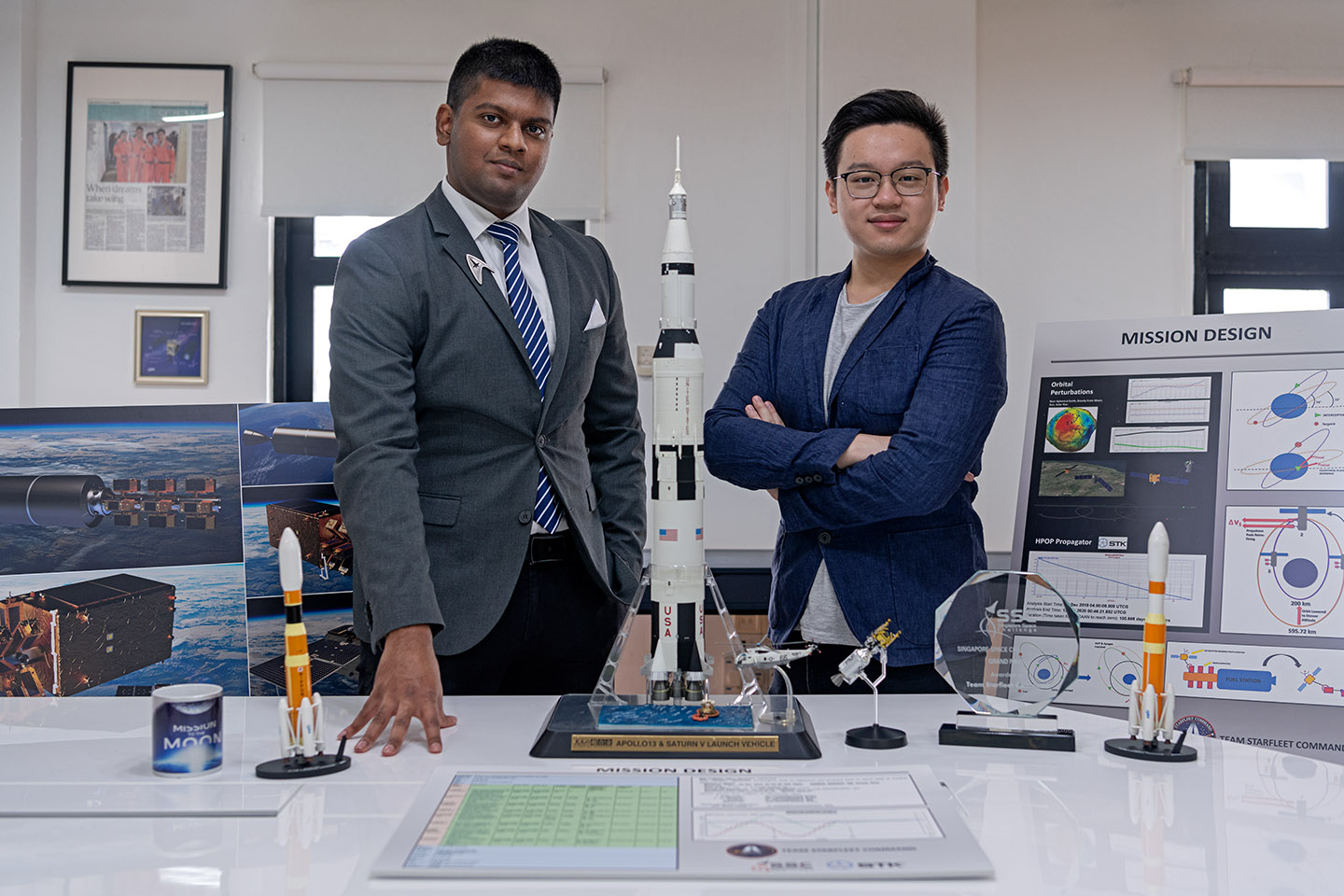

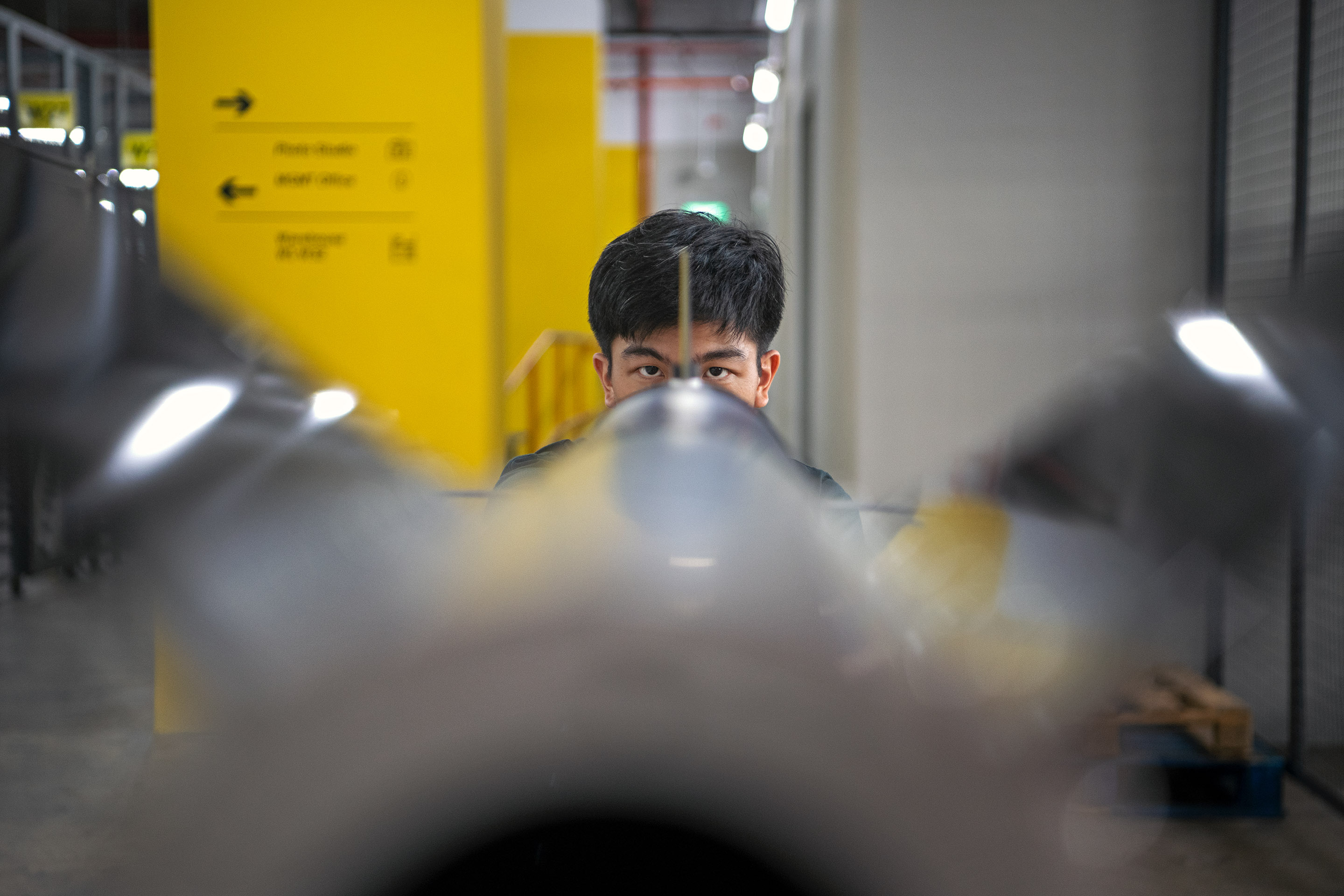
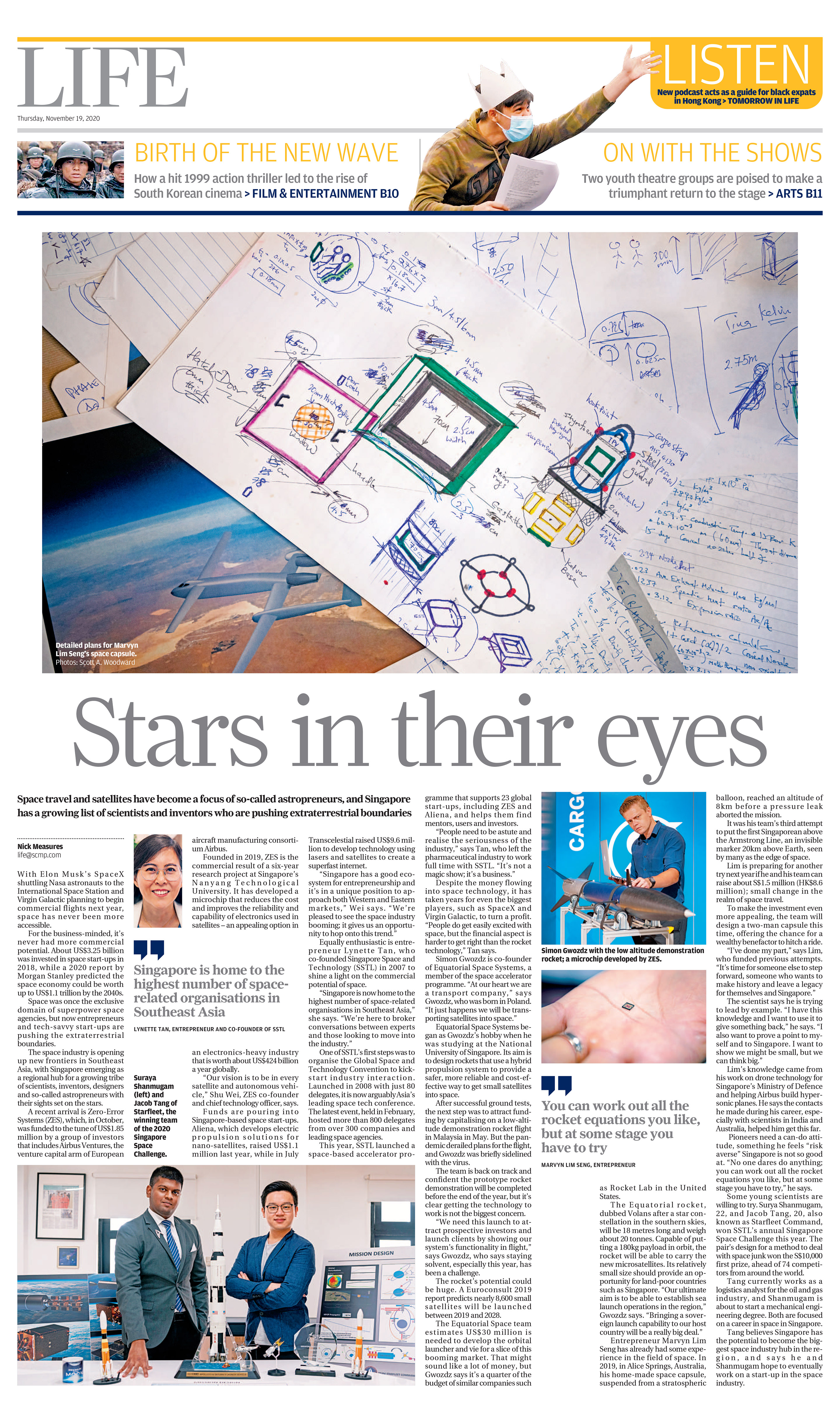
Share your thoughts